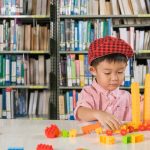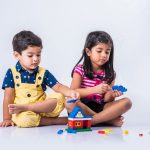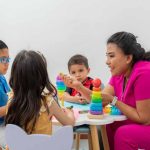Preschool Physical Education: Benefits for Growth
Young children’s physical education is crucial to their growth. Preschoolers should be introduced to physical activities that enhance their general well-being at this age because they are full of energy and curiosity. We shall look at the importance of physical education for preschoolers in this post. Physical education has several benefits that support a child’s overall development, from improving their physical fitness and motor abilities to encouraging social and emotional development.
- Improved Physical Fitness and Motor Skills
- Enhanced Cognitive Abilities
- Social and Emotional Growth
- Healthy Lifestyle Habits
- Improved Gross and Fine Motor Skills
- Development of Self-Confidence and Self-Esteem
- Promotion of Active Play and Imagination
Preschool physical education encourages the growth of motor skills and physical health. Children develop their cardiovascular endurance, strength, and coordination through varied activities like running, leaping, climbing, and throwing. Regular physical education classes ensure that they are physically active from an early age and help them lay the groundwork for a healthy lifestyle.
Exercise helps to build muscles, develop flexibility, and enhance balance and coordination. Preschoolers acquire mastery of their motions by learning to control their bodies in a variety of ways. These physical abilities are necessary for daily activities including walking, climbing stairs, and even correctly holding a pencil. Preschoolers who participate in physical education lay a solid basis for later physical activities and sports.
In addition to improving children’s physical health, physical education has a positive effect on their cognitive development. According to research, brain function is stimulated by physical activity, which enhances one’s ability to pay attention, remember things, and solve problems. Children who exercise stimulate endorphin release in the brain, which improves mood and cognitive abilities.
Preschoolers have the chance to participate in tasks that call for mental focus, decision-making, and memory recall during physical education. They develop their ability to adhere to rules, comprehend them, and use tactics. Physical education sessions’ cognitive demands enhance brain plasticity and cognitive flexibility. Preschoolers do better academically as a result, and they are better able to handle challenging cerebral activities.
Preschoolers can learn social and emotional skills through physical education. Children develop their cooperation, teamwork, and sportsmanship skills by taking part in group activities and team sports. Children learn how to efficiently manage their emotions through these experiences, which also foster positive social connections and self-confidence. Preschoolers who participate in physical education are more likely to feel a sense of community and form positive relationships with their peers.
Children learn to interact, collaborate, and settle issues through group sports activities. They gain the ability to cooperate, share resources, and take turns. Their social abilities, empathy, and respect for others are improved by the collaborative environment. Preschoolers have the chance to express and control their emotions through physical education activities. They gain the ability to deal with difficulties, get beyond roadblocks, and become resilient.
Early exposure to physical education helps toddlers develop good living behaviours. Children who regularly exercise have an appreciation for the value of exercise and the advantages it has for their general well-being. Early exposure to physical education lays the groundwork for healthy habits that last a lifetime, lowering the risk of obesity and related health problems in later life.
By enabling toddlers to enjoy and participate in physical activity, physical education encourages an active lifestyle. It instils a positive attitude towards physical activity and motivates kids to look for opportunities for play and movement. Early physical activity habits are more likely to be maintained throughout life, improving general health and lowering the chance of developing chronic diseases.
Activities used in physical education are intended to improve preschoolers’ gross and fine motor skills. Large muscle groups must be coordinated in order to perform activities like sprinting, jumping, balancing, and throwing. The dexterity and coordination of smaller muscle groups, such as hand-eye coordination when catching or threading beads, are the emphasis of fine motor skills, in contrast.
Preschoolers participate in a range of physical education exercises aimed at fostering the growth of these motor abilities. They work on their gross motor abilities by running, skipping, and hopping, while their fine motor skills are developed by playing with Legos, cutting with scissors, or tying shoelaces. Early acquisition of these abilities paves the way for success in pursuits like writing, painting, and self-care duties in addition to improving physical ability.
Preschoolers have the chance to develop their self-esteem and confidence by taking part in physical education programs. Children develop a sense of success when they master new abilities and reach personal milestones, which increases their self-confidence. Additionally, they are inspired by physical education to establish objectives, confront obstacles, and have faith in their own talents, all of which help them develop positive self-images.
When they finish physical tasks and difficulties successfully, preschoolers feel accomplished and proud. A positive self-perception is fostered by the encouraging environment of physical education sessions, where effort and improvement are praised. This self-assurance transcends physical prowess and has a positive impact on a variety of facets of their lives, including academic performance, social relationships, and general well-being.
Preschoolers who participate in physical education are encouraged to play actively and use their imaginations. Physical education teachers encourage children’s curiosity and creativity by offering a variety of tools and planned exercises. This encourages their capacity for imaginative play, which is essential for their cognitive and social development.
Games, pretend play and creative movement exercises are all included in physical education classrooms to help kids think, explore, and create. These exercises enhance their physical fitness while also fostering the growth of their cognitive and creative abilities. A lifetime love of active play and discovery is fostered in preschoolers as they learn to think critically, make decisions, and create their own games.
Preschoolers who participate in physical education reap a host of advantages that support their overall development. The benefits of physical education are indisputable, ranging from strengthening cognitive ability to supporting social and emotional development and improving physical fitness and motor skills. We start our kids off on the right foot by introducing physical education into the preschool curriculum, which will lead to a lifestyle that is active and healthy. Accepting the value of physical education, let’s give our preschoolers the groundwork they require for a better future.
Consider EuroKids if you want to look into a preschool that emphasises physical education and all-around growth. EuroKids fosters a supportive environment where kids can flourish and believe in the value of physical education. Go to our website right away.















